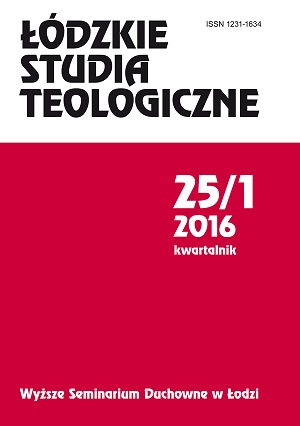Rola rodziny i zrzeszeń katolickich w tworzeniu kapitału społecznego
The role of family and Catholic associations in the formation of social capital
Author(s): Marek StępniakSubject(s): Christian Theology and Religion, Social Philosophy, Civil Society, Philosophy of Religion, Sociology of Religion
Published by: Wyższe Seminarium Duchowne w Łodzi
Keywords: Christian religion; social life; individualistic and liberal ideology; collectivistic ideology; postmodernism; secularization; social capital; Catholic associations;
Summary/Abstract: The place of Christianity in social life is presently described in the relation of contemporary states to the Catholic Church and religious communities, current European models of legal solutions and to the protection of freedom of religion as the basic human right. Ideological presuppositions hinder a fair discussion both on the part of the supporters of individualistic-liberal ideology as well as the collective one. The first ideology perceives religion as a threat to human freedom, the other one negates a supernatural dimension of human existence, defining religion as one of the factors of social alienation. The influence of contemporary postmodernism is significant. The ideology inspires politics of some European states which are driven by secularity that is interpreted in a particular way; its aim is to reduce religion only to a private sphere and finally to eliminate it from public life. Christianity is perceived as an alien element which does not fit with contemporary culture and pluralistic social life. However, Christianity is still an essential element of individual national cultures, it is confessed and practiced, though its expression may vary, while secularization is a strong trend in European societies. Christians are actively present in social life and they contribute to social development though the witness of their faith, family communities and though organizations, associations, communities, religious movements, educational facilities of various levels, institutions. In this way Christians form social capital which is important for the society. Therefore it seems fitting to pose a question about the importance of Catholic associations in the formation of social capital. As Catholic associations base their activity on Christian values and their members affirm principles of Christian morality one can ask also about the significance of Christianity in social life and its impact on the formation of social capital.
Journal: Łódzkie Studia Teologiczne
- Issue Year: 25/2016
- Issue No: 1
- Page Range: 115-126
- Page Count: 12
- Language: Polish

